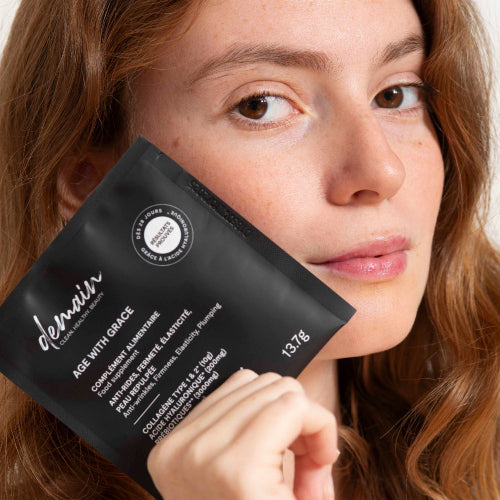Stress, this evil of the century, can be effectively combated by physical activity. Discover how sport acts as a protective factor for mental health, regulating mood and reducing anxiety. Whether it's yoga, running or even swimming, these disciplines are all ways to relieve daily tensions. Finally, learn to manage your stress through sport and thus improve your general well-being and your sleep.
Understanding the link between sport and stress
Sports practice acts on several physiological mechanisms to reduce stress. It stimulates the production of endorphins, these feel-good hormones that provide a feeling of pleasure and relaxation. At the same time, physical activity reduces levels of cortisol, the stress hormone, thus allowing the body to better manage stressful situations.
Exercise also promotes better oxygenation of the brain, which improves mental clarity and helps to evacuate negative thoughts. Activities such as running or yoga allow you to focus on the present moment, thus removing sources of stress.
The benefits don’t stop there : regular exercise improves self-esteem and strengthens social bonds. Participating in group classes or charity competitions can provide a sense of belonging and support, which are essential for combating stress.
The benefits of physical activity on the mind
Sport affects the mind through various mechanisms. The production of dopamine is one of the most notable. This neurotransmitter, often called the "happiness molecule", plays a key role in regulating mood and motivation.
Exercising also releases endorphins. These hormones provide an immediate feeling of well-being, similar to a natural painkiller effect.
Certain activities, such as yoga or moving meditation, contribute to a state of deep relaxation . They help reduce mental tension and promote better management of emotions.
In addition, regular exercise improves brain structures and cognitive abilities. It also promotes a better brain response to stressful situations, thus reducing negative thoughts and the risk of sleep disorders.
How does sport help relieve stress?
Sports play a crucial role in stress management by acting on several fronts. They facilitate muscle relaxation and reduce accumulated physical tension. For example, disciplines such as boxing allow you to release this negative energy by hitting a punching bag, which has an immediate cathartic effect.
Regular physical activity also helps reduce blood pressure . By increasing blood flow, exercise improves circulation and helps maintain healthy blood pressure levels.
Additionally, engaging in outdoor exercise, such as hiking or biking, provides a breath of fresh air. This helps reconnect with the environment, keeping stressful thoughts at bay.
Finally, team sports such as football or basketball bring another benefit: they encourage social interactions and strengthen the feeling of belonging to a group, thus reducing the isolation often associated with stress.
Fighting anxiety through sport: is it possible?
Some disciplines are particularly effective in relieving anxiety. Here are some examples:
- Yoga : This practice combines physical postures, breathing techniques and meditation to reduce mental tension.
- Running : Running helps you focus on the present moment and releases endorphins.
- Swimming : Water has a relaxing effect on the body and mind, helping to relieve accumulated stress.
Studies show that regular exercise of 150 minutes per week can significantly reduce symptoms of anxiety. It is therefore essential to incorporate exercise into your daily routine to benefit from its calming effects.
The role of hormones in stress management
Hormones play a central role in stress management. Cortisol, often referred to as the “stress hormone,” is released by the adrenal glands in response to stressful situations. It prepares the body to cope with stress by increasing blood glucose levels and modulating various bodily functions.
However, excess cortisol can have adverse effects, such as increased blood pressure and decreased immunity. To counteract these effects, the body also releases so-called "feel-good" hormones during exercise.
These hormones include:
- Endorphins : They provide a feeling of pleasure and help reduce the perception of pain.
- Dopamine : It improves mood and increases motivation.
- Serotonin : It contributes to the regulation of mood and sleep.
Regular physical activity can help balance these hormones, reducing the negative effects of stress. It also helps improve quality of life and maintain a good mood.
Sport and sleep: a winning duo against stress
Regular physical activity has beneficial effects on sleep. Indeed, sport promotes the regulation of circadian cycles, thus improving the quality and duration of sleep. During physical activity, the body releases endorphins, which provide a feeling of well-being and facilitate falling asleep.
Some studies show that people who exercise regularly tend to sleep better. Endurance sports like running or cycling are particularly effective.
In addition, sport helps to release tensions accumulated during the day, thus reducing episodes of insomnia. To optimize the effects of sport on sleep, it is recommended to practice physical activity at least three hours before going to bed.
Sports to reduce blood pressure and combat stress
To reduce blood pressure, it is recommended to focus on moderate-intensity endurance activities. Some of the most effective sports include:
- Brisk walking
- Cycling
- Swimming
These disciplines promote blood circulation and help maintain healthy blood pressure levels. In addition to these sports, breathing exercises, such as yoga, can also be beneficial.
Practicing yoga helps you focus on breathing and reduces levels of the stress hormone cortisol.
It is also advisable to dedicate at least 30 minutes a day to physical activity to feel the benefits. A regular routine can not only lower blood pressure, but also improve mental health by releasing endorphins, feel-good hormones.
Which sports should you choose for optimal well-being?
For optimal well-being, opt for sports that combine physical activity and mental calm. Yoga , for example, is excellent for relaxation. It improves flexibility and reduces levels of cortisol, the stress hormone.
Swimming is also beneficial. It provides a full-body workout while being gentle on the joints. The water exerts a soothing pressure on the body, promoting relaxation.
Outdoor sports like hiking or cycling help you reconnect with nature. Breathing fresh air and admiring the scenery contributes to better mental health. Discover the other benefits of outdoor sports .
For those who prefer more dynamic activities, martial arts like tai chi combine slow movements with mental focus.
Finally, team sports such as football or basketball strengthen social bonds. Working as a team helps develop a sense of belonging and combat isolation.










